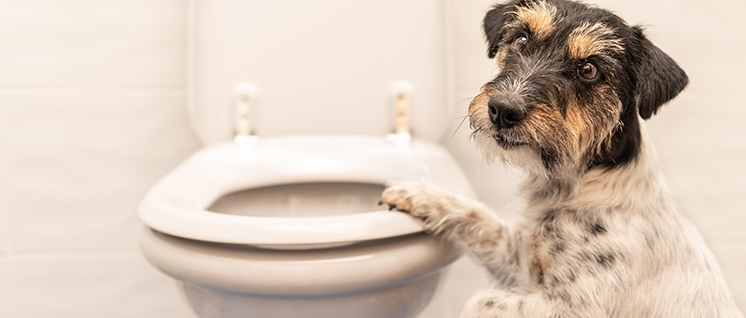Welcome back as we continue our series on keeping our 4-Legged Furry Friends Happy and Healthy!
Basic pet-proofing measures are just SIMPLY GOOD OLD COMMON SENSE, like keeping small objects and items that can easily be eaten or swallowed out of their way. As for other dangers, just look around from your pet’s point of view and see what things might be tempting or troublesome. Just like you would baby-proof a home, the same is true for pet-proofing.
Hazards in the Bathroom and Laundry Room
- Medications that treat human medical conditions can make pets very sick. Never give your pet any medication unless directed by your veterinarian. As a rule, the following medicines should be tightly closed and stored in a secure cabinet above the counter and away from pets: non-steroidal anti-inflammatory drugs such as aspirin, ibuprofen, naproxen, acetaminophen, diet pills, antihistamines, cold medicines, vitamins and antidepressants.
- Bath and hand soaps, toothpaste and sun blocks should also be kept away from your pets. They can cause stomach upset, vomiting or diarrhea.
- Toilet bowl water that has been treated with chemical cleaners can irritate the digestive tract, therefore, keep toilet lids closed.
- Sinks and tubs filled with water and left unattended can pose a drowning hazard for small pets.
- Dental floss can be dangerous if eaten or swallowed. Dental floss is made to be extremely strong to withstand hard tugging and pulling when used to floss your teeth. Unfortunately, those same properties make it almost indestructible and it does not dissolve or digest when swallowed. As a matter of fact, dental floss is so strong that it can cause lacerations or strangulation to an animal’s intestinal tract.
- Cleansers, detergents, fabric softeners and bleach are obvious hazards.
- Washers and dryers can be a tempting spot for a nap, especially for cats. Be sure to keep their lid/doors closed when not in use!
WHAT TO DO IF YOUR PET IS POISONED?
Don’t wait! Time is critical for successfully treating accidental poisoning. Call your Vet OR the ASPCA Animal Poison Control Center at 888-426-4435. Be prepared to state your dog’s breed, age, weight and any symptoms. Have the product container or plant sample nearby to assist with identification so the appropriate treatment recommendations can be made.
We hope you found this 2nd segment of our PET-PROOFING YOUR HOME Series informative and interesting.
To locate our recommended ANIMAL-RELATED organizations in Spring Hill and Brooksville of Hernando County, Florida, be sure to visit our “Trusted Vendors” on our website @ www.GailSellsFloridaHomes.com.
Until then… it’s all about YOU!


